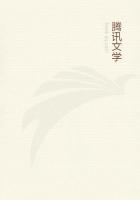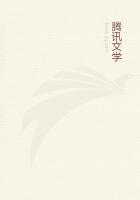These words being heard and repeated by those near her produced such an unfavourable impression that one of the Carmelite monks tried to explain them away by declaring that the superior had not said "Je renie," but "Zaquay," a Hebrew word corresponding to the two Latin words, "Effudi aquam" (I threw water about). But the words "Je renie" had been heard so distinctly that the monk's assertion was greeted with jeers, and the sub-prior reprimanded him publicly as a liar. Upon this, the superior had a fresh attack of convulsions, and as all present knew that these attacks usually indicated that the performance was about to end, they withdrew, ****** very merry over a devil who knew neither Hebrew nor Gaelic, and whose smattering of Latin was so incorrect.
However, as the bailiff and civil lieutenant were determined to clear up every doubt so far as they still felt any, they went once again to the convent at three o'clock the same afternoon. Barre came out to meet them, and took them for a stroll in the convent grounds. During their walk he said to the civil lieutenant that he felt very much surprised that he, who had on a former occasion, by order of the Bishop of Poitiers, laid information against Grandier should be now on his side. The civil lieutenant replied that he would be ready to inform against him again if there were any justification, but at present his object was to arrive at the truth, and in this he felt sure he should be successful. Such an answer was very unsatisfactory to Barre; so, drawing the bailiff aside, he remarked to him that a man among whose ancestors were many persons of condition, several of whom had held positions of much dignity in the Church, and who himself held such an important judicial position, ought to show less incredulity in regard to the possibility of a devil entering into a human body, since if it were proved it would redound to the glory of God and the good of the Church and of religion. The bailiff received this remonstrance with marked coldness, and replied that he hoped always to take justice for his guide, as his duty commanded. Upon this, Barre pursued the subject no farther, but led the way to the superior's apartment.
Just as they entered the room, where a large number of people were already gathered, the superior, catching sight of the pyx which Barre had brought with him, fell once more into convulsions. Barre went towards her, and having asked the demon as usual by what pact he had entered the maiden's body, and received the information that it was by water, continued his examination as follows:
"Quis finis pacti" ( What is the object of this pact?
"Impuritas" (Unchastity).
At these words the bailiff interrupted the exorcist and ordered him to make the demon say in Greek the three words, 'finis, pacti, impuritas'. But the superior, who had once already got out of her difficulties by an evasive answer, had again recourse to the same convenient phrase, "Nimia curiositas," with which Barre agreed, saying that they were indeed too much given to curiosity. So the bailiff had to desist from his attempt to make the demon speak Greek, as he had before been obliged to give up trying to make him speak Hebrew and Gaelic. Barre then continued his examination.
"Quis attulit pactum?" ( Who brought the pact ? )
"Magus" ( The sorcerer).
"Quale nomen magi?" ( What is the sorcerer's name?)
"Urbanus" (Urban).
"Quis Urbanus? Est-ne Urbanus papa?"
(What Urban? Pope Urban?)
"Grandier."
"Cujus qualitatis?" (What is his profession?)
"Curcatus."
The enriching of the Latin language by this new and unknown word produced a great effect on the audience; however, Barre did not pause long enough to allow it to be received with all the consideration it deserved, but went on at once.
"Quis attulit aquam pacti?" ( Who brought the water of the pact?)
"Magus" (The magician).
"Qua hora?" (At what o'clock?)
"Septima" (At seven o'clock).
"An matutina?" (In the morning?)
"Sego" (In the evening).
"Quomodo intravit?" (How did he enter?)
"Janua" ( By the door).
"Quis vidit?" (Who saw him?)
"Tres" (Three persons).
Here Barre stopped, in order to confirm the testimony of the devil, assuring his hearers that the Sunday after the superior's deliverance from the second possession he along with Mignon and one of the sisters was sitting with her at supper, it being about seven o'clock in the evening, when she showed them drops of water on her arm, and no one could tell where they came from. He had instantly washed her arm in holy water and repeated some prayers, and while he was saying them the breviary of the superior was twice dragged from her hands and thrown at his feet, and when he stooped to pick it up for the second time he got a box on the ear without being able to see the hand that administered it. Then Mignon came up and confirmed what Barre had said in a long discourse, which he wound up by calling down upon his head the most terrible penalties if every word he said were not the exact truth. He then dismissed the assembly, promising to drive out the evil spirit the next day, and exhorting those present to prepare themselves, by penitence and receiving the holy communion, for the contemplation of the wonders which awaited them.















